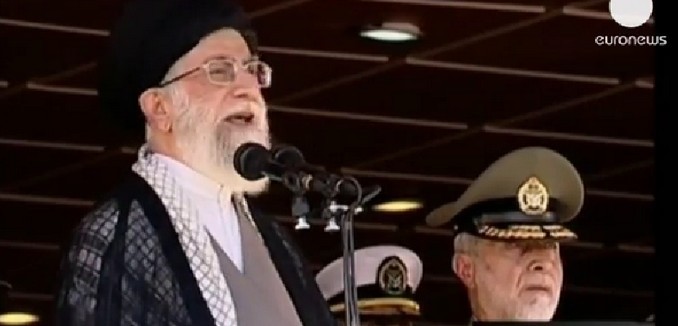A policy towards Iran that is based on the belief that that Islamic Republic will change its destabilizing behavior in the Middle East is mistaken, as even after signing a nuclear deal Iran will not curb the nation’s “imperial ambition,” three fellows at the Washington Institute of Near East Policy wrote in an op-ed published today in The New York Times.
The authors—Mehdi Khalaji, Soner Cagaptay and James Jeffrey—all noted that nations with “imperial ambition” do not usually voluntarily give up that ambition. They observed that Iran has employed “terrorism, proliferation, military proxies, and occasionally old-fashioned diplomacy” to further its domination of the Middle East. They also provided a brief history of Iran’s diplomatic history since the 1979 Islamic revolution.
In 1979, the anti-American leaders of the revolution fused their nationalist claims of past Persian glories with a millennial ideology to create a single Islamic state militancy. However, after the bloody and protracted Iran-Iraq war in the 1980s, the Islamic Republic realized that conventional military doctrine would no longer suffice.
In conjunction with Tehran’s doctrine of “exporting the revolution” to nearby Muslim countries, Ayatollah Ali Khamenei and the Islamic Revolutionary Guards Corps developed asymmetric warfare tactics aimed at building Iranian influence through sectarian and political alliances.
In doing so, Iran often acted as the guardian of the broader Shiite community in places such as Bahrain and Yemen. Iran has established a carefully crafted network of Shiite militias: Lebanon’s Hezbollah, Yemen’s Houthis and Iraq’s Badr Corps, among others. Moreover, Iran controls the Shiite clerical establishment and financial networks throughout the Middle East.
The authors quoted Iranian Ayatollah Ali Khamenei, who said, as engagement with the United States was beginning in 2013,“I am not a diplomat. I am a revolutionary.” The experts observed that Khamenei’s “legitimacy stems from the Iranian revolutionary project, and any compromise would be an admission that he does not believe in that narrative of world history.”
The op-ed repudiated the belief, as expressed by defenders of the current nuclear negotiations with Iran such as columnists Thomas Friedman and David Ignatius, that engagement with Iran will moderate the regime’s behavior.
A number of foreign policy experts in recent weeks have questioned the assumption that engagement with Iran will lead it to moderate its behavior, including David Rothkopf, editor of Foreign Policy magazine; former State Department official Aaron David Miller; and former Secretaries of State Henry Kissinger and George Shultz.
[Photo: euronews (en français) / YouTube ]




